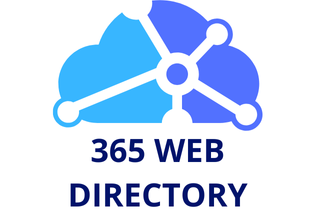Understanding AI Frameworks
AI frameworks play an essential role in shaping how artificial intelligence applications are developed and deployed. By definition, AI frameworks are structured environments that provide developers with pre-built tools and libraries to build, train, and deploy AI models efficiently. They ensure consistency in design and implementation, allowing for scalable solutions across varying applications.
One of the significant challenges in AI development is data processing. Handling large datasets efficiently requires robust AI frameworks to manage data cleaning, transformation, and feature extraction. These frameworks simplify complex data processing tasks by automating routine operations, thus enabling more focus on model training and optimization.
In the same genre : Mastering Serverless: A Comprehensive Guide to Effective Logging and Monitoring Techniques
A robust AI framework should offer several key features:
- Scalable solutions: It must adapt to increasing data volumes and computational requirements without degrading performance.
- Flexibility and interoperability: The framework should support various data types and integrate smoothly with other tools and platforms.
- Ease of use: An intuitive interface and comprehensive documentation are essential to enhance developer productivity and shorten learning curves.
- Performance optimization: Examples include efficient memory usage and parallel processing capabilities, crucial for handling extensive datasets and complex models.
Such characteristics ensure AI frameworks not only meet current demands but also adapt to future technological advancements.
This might interest you : Top Strategies for Safeguarding Your AI-Driven Customer Service Solutions
Essential Tools and Technologies for Data Processing
Understanding the tools and technologies pivotal to data processing is essential in our digital age. These tools not only handle massive data but also ensure scalability and efficiency.
Cloud-Based Solutions
Cloud platforms offer a plethora of benefits for data processing. With their on-demand scalability and cost-effectiveness, these platforms allow businesses to process large datasets without maintaining physical infrastructure. Popular cloud services like AWS, Google Cloud, and Microsoft Azure support AI frameworks, providing high computation power essential for complex analyses. Moreover, the integration of cloud solutions with local infrastructures enhances flexibility, enabling seamless data handling across environments.
Big Data Technologies
In the realm of Big Data, frameworks such as Hadoop and Spark stand out. While Hadoop is renowned for batch processing, Spark excels in stream processing, offering real-time analytics capabilities. The decision between batch vs. stream processing largely hinges on the specific business needs, emphasizing the importance of a tailored approach. Furthermore, data lakes play a crucial role in AI processing by storing vast amounts of raw data, facilitating easy access for machine learning applications.
Machine Learning Frameworks
Popular Machine Learning (ML) frameworks like TensorFlow and PyTorch aid in building intelligent systems. Each comes with its advantages; TensorFlow offers an extensive ecosystem supportive of production deployment, whereas PyTorch is favored for its flexibility and user-friendly dynamics. Understanding the application requirements is paramount in choosing the right ML tools, ensuring optimal results.
By leveraging these advanced technologies and tools, organizations can unlock the full potential of data processing, maintaining competitiveness and driving innovative solutions.
Step-by-Step Implementation Strategy
Embarking on an AI deployment journey necessitates meticulous project planning and implementation strategies to ensure success. Initiating the process with clear goal-setting is pivotal. Establish a comprehensive plan that outlines objectives, timelines, and success metrics. As you map out the project, account for potential challenges and integrate flexibility for adaptive measures.
Constructing a robust data architecture is crucial for efficiently handling massive volumes of data required in AI projects. Emphasise scalability to accommodate future data growth. This involves choosing suitable infrastructure and storage solutions that ensure effective data processing and analytics. Ensuring data quality and accessibility will form the backbone of your AI system’s performance.
Assembling the right team is equally vital for triumph in AI projects. Select individuals with diverse skillsets—data scientists, machine learning engineers, and domain experts—to bring a holistic approach to problem-solving. Encourage collaboration and continual upskilling to stay abreast of technological advancements and methodologies. Equipping the team with cutting-edge tools and fostering a culture of innovation will catalyse project outcomes.
Implementing these strategies proactively will guide your project towards sustainable success, allowing your organisation to leverage AI’s transformative potential effectively.
Best Practices for Effective AI Frameworks
Understanding the nuances of best practices can profoundly impact the efficiency of your AI projects. Subtle missteps can result in inefficiencies, making robust rules essential.
Continuous Integration and Delivery
Incorporating Continuous Integration and Delivery (CI/CD) in AI projects is paramount. It ensures expedited deployment. How does CI/CD bolster project deployment? By enabling automated testing and integration of new code frequently.
Several tools such as Jenkins, GitLab, and Travis CI support these processes. Maintaining version control is critically important when handling data processing changes, guaranteeing that modifications do not interfere with previously stable versions.
Performance Monitoring
Performance monitoring helps ascertain an AI framework’s effectiveness. But which metrics should one consider? Key metrics include accuracy, precision, and latency.
Optimizing AI frameworks often leverages techniques such as hyperparameter tuning and model pruning. Tools like Prometheus and Grafana offer sophisticated monitoring solutions, enabling detailed logging to aid diagnostics.
Security and Compliance
Addressing security in data handling is crucial. AI applications must comply with regulations like GDPR and HIPAA. How can such compliance be achieved? By implementing data encryption, access control, and conducting regular audits.
When prioritizing data privacy, employ practices such as anonymizing data and securing data storage to maintain user trust and meet legal obligations efficiently.
Case Studies and Real-World Applications
In the ever-evolving landscape of technology, real-world AI applications serve as beacons, illuminating the path forward for industries across the globe. Companies like Amazon and Google have seamlessly integrated AI frameworks into their operations, showcasing remarkable success stories that inspire others.
Case studies reveal how these giants leverage AI to streamline operations, enhance decision-making, and boost business efficiency. For instance, Amazon’s use of predictive analytics for inventory management exemplifies the transformation in operational efficiency. The application of machine learning models forecasts demand with uncanny precision, directly impacting stock levels and customer satisfaction.
Another real-world application is Google’s AI-driven algorithms, which optimize ad targeting. This approach not only augments marketing strategies but also enhances user engagement and revenue streams. Their success stories underscore the vital role AI plays in modernizing business processes.
Lessons learned from these case studies highlight the importance of a well-structured framework. Companies must prioritize data accuracy, establish strong governance, and continually refine AI models. Shared experiences emphasize the value of scalability and adaptability in ever-changing markets.
Ultimately, the impact of AI on business efficiency cannot be understated, as it empowers companies to make informed decisions, driving growth and innovation in today’s competitive environment.
Challenges and Solutions in AI Development
The development of AI systems faces several challenges, particularly in the realms of data processing and scalability. These hurdles often require strategic solutions to ensure the effectiveness and reliability of AI applications.
Data Quality Issues
In AI frameworks, common data quality challenges include incomplete datasets, inaccuracies, and inconsistent data formats. To tackle these, employing effective data processing strategies is crucial. Tools like OpenRefine and Python libraries such as Pandas are instrumental in data cleaning and preprocessing. They help ensure that the datasets are not only consistent but also robust enough for machine learning algorithms.
Scalability Problems
Scalability is another significant challenge in AI, especially as the volume of data continues to grow. It is vital to recognize these challenges early on to formulate strategies that manage increased data loads efficiently. Adopting scalable design patterns, such as microservices architecture, can enhance the processing capabilities of AI systems. Implementing distributed processing using technologies like Apache Hadoop and Apache Spark can further aid in this.
Integration with Legacy Systems
Integrating AI systems with existing legacy systems often poses significant challenges due to compatibility issues. It is essential to develop strategies that enable smooth integration. One approach involves using middleware solutions to act as a bridge between the AI and legacy systems. Success stories, like those from financial institutions, illustrate how thoughtful integration can result in enhanced operational efficiency without disrupting existing workflows.
Additional Resources for Further Learning
To enhance your understanding of AI, exploring learning resources is crucial. Begin with recommended books and courses on AI frameworks, which provide foundational knowledge and practical insights. Popular titles such as “Artificial Intelligence: A Guide to Intelligent Systems” and “Deep Learning with Python” are valuable for both novices and seasoned professionals.
For those seeking further reading, delving into AI research papers and publications is essential. Staying updated with recent AI developments helps deepen your understanding and keeps you informed about emerging trends. Websites like arXiv and conference proceedings such as NeurIPS and ICML are excellent sources for cutting-edge research papers.
Engagement in online communities and forums is another way to bolster your learning journey. Platforms like Reddit’s Machine Learning community or AI-specific discussion forums offer ongoing support and a chance to interact with like-minded individuals. These communities are invaluable for exchanging ideas, seeking advice, and expanding your network within the AI field.
For structured learning, various online platforms offer in-depth courses on AI and machine learning. Websites like Coursera and edX provide courses from renowned universities, allowing you to learn at your own pace. Combining these resources can significantly aid your pursuit of comprehensive AI knowledge.











